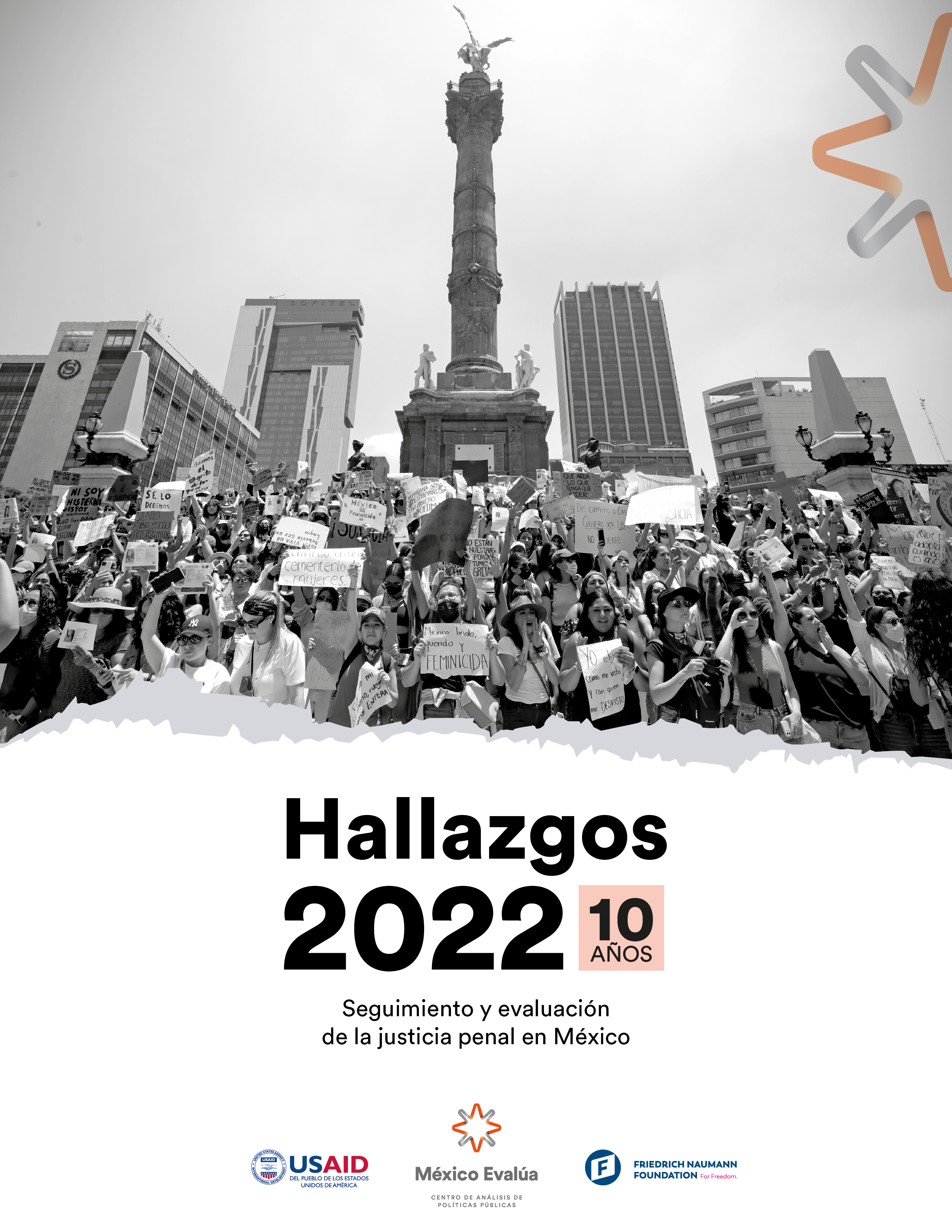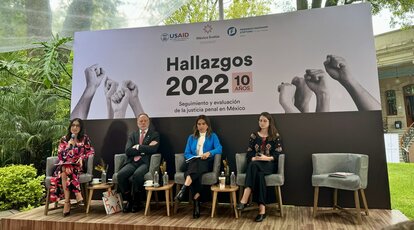Mexico
Mexico’s criminal justice system is much more than its high impunity rates, and this think tank is here to prove it

Mexico's criminal justice system has long been in the international spotlight for being portrayed as an enabler of corruption, impunity, and inefficiency, especially regarding topics that spark international attention, such as drug-related crimes. While these are undeniably constant challenges, it is essential to look beyond the stereotypes and recognize the ongoing efforts and positive developments within the Mexican legal system. Upon closer examination, we find a complex and evolving legal landscape that encompasses a wide range of initiatives aimed at reforming and improving justice.
This year Mexico marks 15 years of the constitutional reform that represented a decisive shift from an inquisitorial to an adversarial system of justice with an established period of transition of 8 years. As expected, this transition has not been without its share of challenges and a pivotal part in highlighting the impact, achievements and drawbacks of this process is the work of México Evalúa.
In 2013, amid this transition, México Evalúa published its first report on the evaluation of the implementation and operation of the new criminal justice system – Hallazgos (English: Findings). The objective of that first publication was to analyse the implementation of the reform. The methodology used focused on the efficiency in the implementation and consolidation of the reform with the intention of presenting and contrasting the enabling factors of the transition to the adversarial system.
Since then, Hallazgos has been using data, research, and expert analysis to provide a deep understanding of the ongoing reform process by not only highlighting its success, but also critically analysing areas that require improvement. Each year, by providing valuable insights and recommendations, Hallazgos has positioned itself as a reputable source of information for legal professionals, local and federal government, and the general public alike.
The result? In short: accountability and cooperation. Authorities became interested in knowing how their states are performing in comparison to others and which good practices they can follow. And the public got to know the intricacies of the system and thus, a more informed and engaged society resurfaced.

Hallazgos 2022 publication results presentation
© México EvalúaHallazgos started acting like a watchdog, holding the government, legal professionals, and institutions accountable for their roles in the reform by identifying gaps in the implementation and providing valuable recommendations to close them. One notable example is the Institutional Capacity Ranking enclosed in the report. This ranking categorizes the entities according to their institutional capacity to respond to the demands and requirements of the criminal justice system, both in terms of public policy, as well as their capacity in terms of personnel, infrastructure and internal organization. This data is not mere information, but an opportunity to develop objectives to improve performance.
Furthermore, for the past 10 years, due to this yearly report, a network has been created between México Evalúa, governmental institutions and other civil society organizations. In cultivating dialogue and trust, this network carried out various initiatives meant to facilitate the work of the criminal justice system by promoting efficiency and a decrease in workload. Thus, Hallazgos paved the way for community policing and improved relations between the public and authorities, a collaborative effort that is essential in maintaining a just society.
Now that the transition to the adversarial system has been completed, México Evalúa plans to continue doing its crucial work by focusing on the quality of the criminal justice system. Moving from procedural aspects, which have to do with the implementation and consolidation of the reform, to more substantive aspects regarding an ideal criminal justice. A criminal justice that goes beyond sanctioning reprehensible social conduct, and focuses on guaranteeing and protecting the rights of all parties involved.

From left to right: Christel Rosales (Mexico Evalúa Justice Program Coordinator), Jene Thomas (USAID Mission Director for Mexico), Mariana Campos (Mexico Evalúa General Director) and Irina Burgaza (Mexico Project Assistant at the Friedrich Naumann Foundation).
© México EvalúaHallazgos focuses not only on Mexico's criminal justice system but also provides principles, insights, and recommendations that have global resonance, touching on several key aspects. These attributes render it an invaluable resource and a wellspring of inspiration, particularly in terms of data-driven analysis, accountability, oversight, and policy recommendations. The publication distinguishes itself through its meticulous utilization of data, research, and expert analysis, thereby exemplifying how data can comprehensively evaluate justice systems and facilitate data-driven decision-making. The report's pivotal role in holding governments, legal professionals, and institutions accountable underscores a dedication to transparency, fairness, and safeguarding human rights within legal processes—a bedrock of every democratic state. Concerning the latter, Hallazgos furnishes evidence-based policy recommendations, serving as a blueprint for any country seeking to implement or enhance features of its criminal justice system.
Above all, what this ongoing publication, which has now reached its tenth anniversary, demonstrates is the paramount importance of civil society organizations in the transformation of legal systems and public policies. These organizations serve as crucial counterbalances to governments and champion a more informed, just, and equitable society.
In the dynamic landscape of global criminal justice reform, successful shifts toward more transparent and equitable systems are a shared aspiration. While Mexico's transition is far from perfect, consistent studies like Hallazgos serve to highlight essential aspects to be considered when embarking on such a transformative process.
As Mexico continues its journey toward a more just and efficient criminal justice system under the adversarial framework, Hallazgos remains a crucial compass guiding the way. Its role in offering data-driven analysis, holding stakeholders accountable, and shaping policies is fundamental for the administration of justice.
You can find the latest complete study (in Spanish) here. You can find previous studies (some in English) here.
